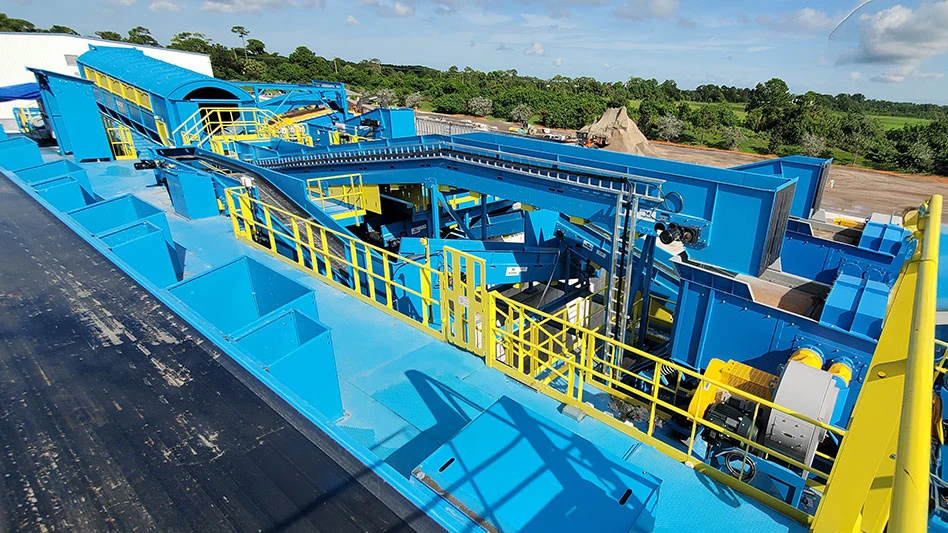Economic forecasters are generally good at acknowledging that theirs is an
imprecise practice. But in recent months they have been even more careful
than usual to acknowledge that their crystal balls are clouded with too many variables. Certainly the combination of supply, demand and speculation that drives the secondary commodity markets is sending out an incongruous mix of signals regarding the direction of the economy.

For much of 2002, ferrous scrap prices finally stayed in the $100 per ton range, according to published averages. This was a welcome signal to many that basic industries were finally regaining health and stability. Some credit the Section 201 actions for propping up steel (and scrap) prices, while others say the balance of global steelmaking capacity and demand is being brought into line at long last.
In some cases, scrap dealers who should be happy about the higher prices are instead disgruntled because there is not enough ferrous scrap on the market to fill orders. Yet others say that the price increases are a mystery to them, because mill buyers are still melting at reduced capacity and stubbornly clinging to lower prices.
Through all of the ferrous price fluctuations, aluminum and copper prices remain in the doldrums no matter how closely scrap traders watch their LME and Comex screens for signs of life. The aviation market remains down, with some 35,000 job losses in that sector since Sept. 11, 2001, and many automotive industry analysts worry that the zero percent financing magic has run its course, and that vehicle sales are due for a letdown in 2003. And not to be forgotten is the questionable state of middle-class household finances, thrown off balance in some cases by evaporated stock portfolios or in other cases by an accumulation of credit card and installment plan debt.
But not all is skepticism in the market. Some steel companies are finally reporting profits, and industry observers are increasingly reporting that companies in the basic industries categories are beginning to get access to capital that was formerly pumped into the technology sector. China continues to build infrastructure and consume materials at an astounding pace, while the economies of Europe, North America and Japan—though hardly resurgent—have at least managed to avoid serious pitfalls in 2002.
This mixture of troubling news and good news is offset yet one more time by the intangibles of war and terrorism. The threatened U.S. or U.N. action against Iraq affects consumer buying and business investment decisions in subtle ways, economists say. Without question, the attacks of Sept. 11 shook the confidence of some who had never previously questioned their ability to travel safely, especially domestically.
Whether watching a two-hour movie or monitoring international events, people want a tidy ending, it seems. The best Holiday Season gift world leaders could present to their hopeful citizens would probably be an end to uncertainty in places like Iraq, Kashmir and (the gift that seems most unlikely) in Israel and Palestine. Far more important than making life easier for economic forecasters, the citizens of those regions deserve it.

Explore the December 2002 Issue
Check out more from this issue and find your next story to read.
Latest from Recycling Today
- Greenwave raises revenue but loses money in Q2 2025
- Recycled steel prices hold steady
- EY says India’s need for scrap imports will continue
- Coming full circle
- Amcor, DCM introduce fertilizer packaging with 35 percent recycled content
- Comstock Metals gets closer to commissioning commercial-scale solar panel recycling facility
- Washington selects Circular Action Alliance as PRO
- Smurfit Westrock expands in Latin America





